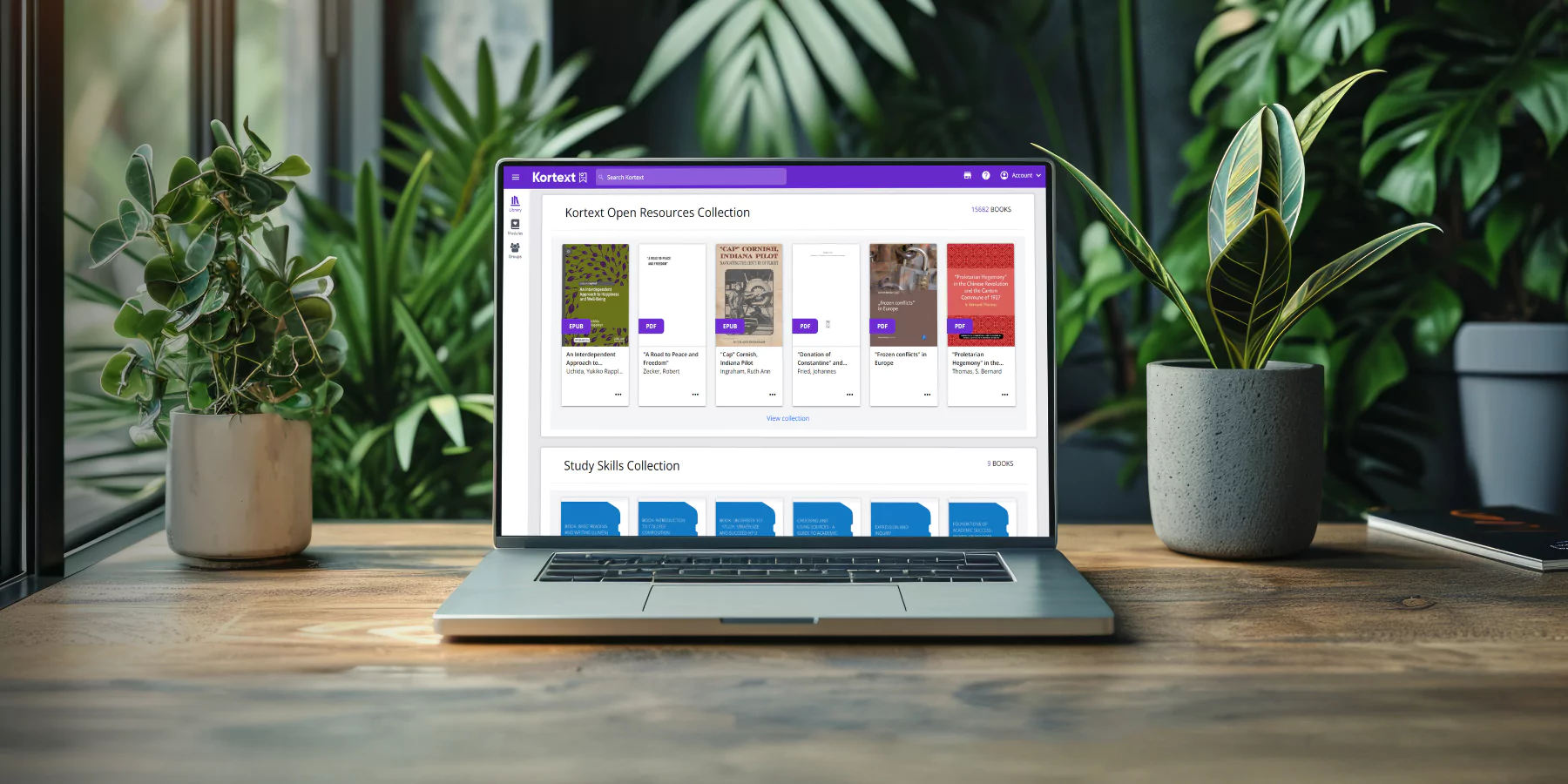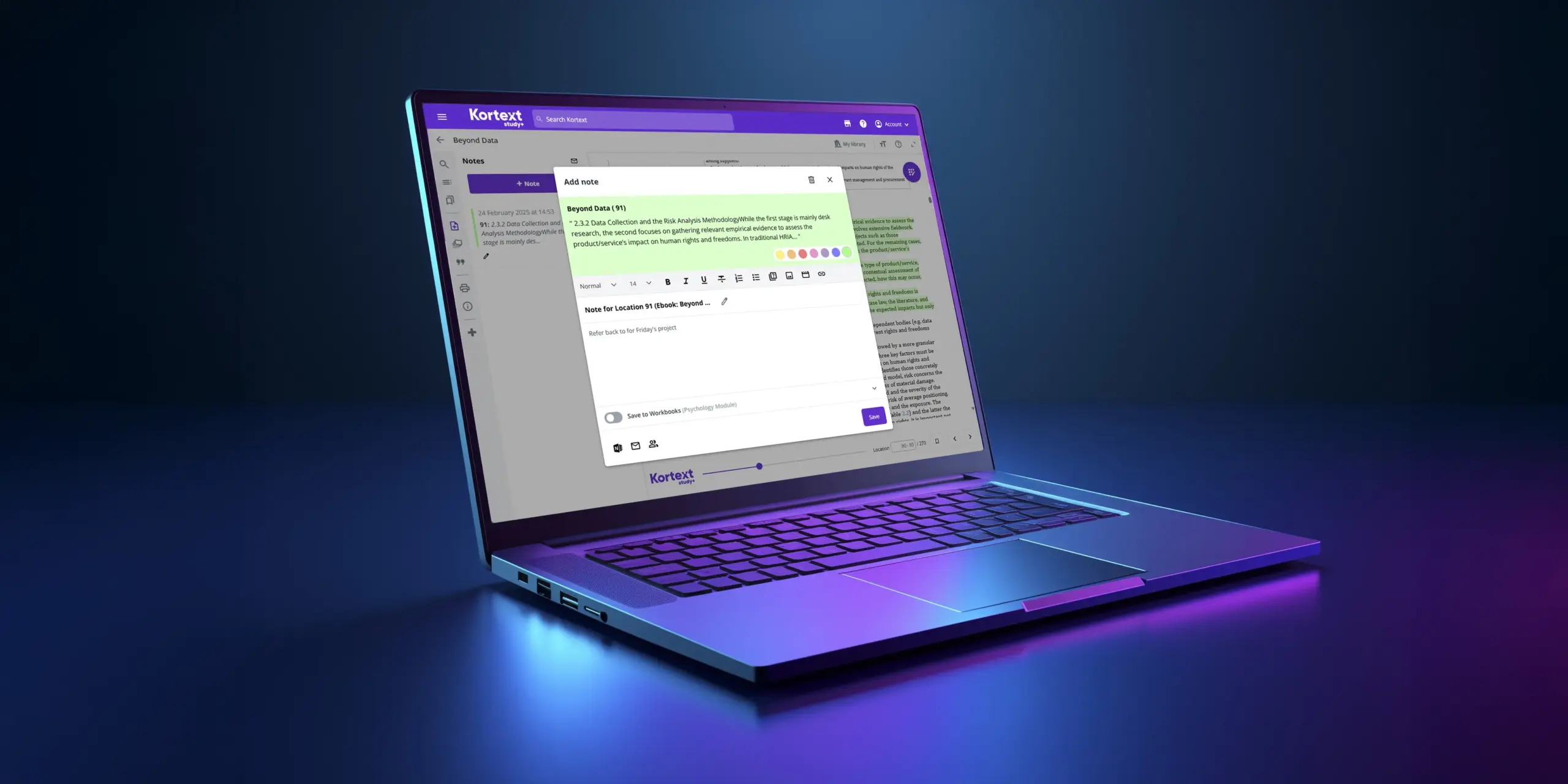How our pricing works
In our final blog about our Annual Librarian Survey 2024 (read our blogs on workflow integration and licence models), we’re going explore another perception – that Kortext is too expensive.
We can guarantee the lowest price for content
In fact, Kortext is not more expensive than other suppliers, and we guarantee to match or beat competitor prices.
However, often a library will ask us to supply a mix of content – both textbooks and monographs. Unfortunately, many eTextbooks are only available from publishers on a 1:1 licence, rather than other licence models. It’s those items that bump up the overall price of the package.
Working with publishers
There are several ways we can offer libraries a discount, such as multiple year deals.
Further, our positive relationships with publishers – developed over many years – enable us to approach them on a case-by-case basis on behalf on an institution to negotiate a lower price.
For example, a book might have been selected by an academic as a key text in a reading list. If that title isn’t classified as a ‘textbook’ by the publisher, that’s an anomaly we can address with them and the publisher usually agrees to supply the item to the institution at a lower price.

Growing our open offering
We understand the considerable financial pressure faced by the higher education sector at the moment, and that’s why we’re committed to developing our open content.
The ever-growing Kortext Open Resources Collection now hosts 20,000+ titles. We have a team dedicated to actively sourcing open access content and Open Educational Resources (OERs) on a diverse range of subjects to add to our platform.
For instance, we’re proud to host John McMurray’s Organic Chemistry – A Tenth Edition from Open Stax – the world’s most widely used textbook for organic chemistry courses.
You don’t even have to be a Kortext customer to access our Open Resources Collection. In fact, we’ve made it available to all FE colleges regardless of whether they’re our partners or not.
Developing the potential
In addition, we load open access content from some of our partner institutions onto our platform. This can be made available to just that institution, or shared more widely.
The benefit to the institution is that they can leverage our smart study tools – like rich note-taking, highlighting, bookmarking, etc. – on their content. Meanwhile, their students can benefit from the Kortext app, accessing study materials anytime, anywhere and on any device.
Our vision is to enable an institution to upload their short-form content (such as teaching materials created for a course) and any books published by an institutional press.
As well as utilising our smart study tools, an institution could harness our generative AI capabilities to produce dynamic learning materials based on their content, such as interactive Q&A. Being able to develop digital companion resources is out of reach for most institutions (and small publishers), so we’re excited about the opportunities for more inclusive publishing.
As a final note, we encourage all institutions and publishers to start a conversation with us – we can develop a bespoke solution for you based on your needs and budget.
Ready to discover more?
If you’d like to know more about how Kortext can support your preferred licence models, talk to us today.
You can also download our Annual Librarian Survey Report white paper. Submit your details via the form on this page to get your free copy and to see all the results to the questions we asked librarians in 2024.






